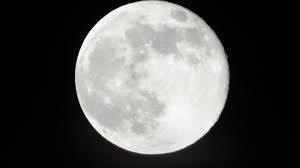Did you know the Latin name for 'moon' is Luna - the root of the word for 'lunatic'? It now also seems that the moon may be responsible for those maddening nights spent tossing and turning…
Science of Sleep
Researchers first set out to determine if the phase of the full moon in particular, was responsible for increased aggression or restlessness. A 2010 study however, found that a full moon in fact made no increased negative behaviour or disturbances. However, in Switzerland at the Psychiatric Hospital of the University of Basel, sleep researcher Christian Cajochen noticed that many of his patients complained about sleep around the time of the full moon. This jarred Cajochen to recall a study he and his colleagues had performed years prior in which the moon seemed to have a distinct affect on sleep patterns of the test subjects…. rather unexpectedly, the lunar cycle influenced sleep even when the subject did not see the moon or was not aware of the moon phase!
Study and findings
33 volunteers slept in a special sleep lab each night for 4 years. These individuals had healthy sleeping patterns and did not take drugs or any medication. Researchers monitored three factors each night: hormone secretions, eye movements and brain activity. After reviewing the data, the researchers found that during a full moon:
- brain activity related to sleep dropped by 30%
- people took on average 5min longer to fall asleep
- people slept for 20min less overall
- people said they felt their sleep was 'poorer'
- they showed a diminished level of melatonin (sleep hormone that helps regulate sleep cycles)
The scientists detailed their findings July 25 in the journal Current Biology.
What does it mean?
It has been proven that circadian rhythms are a day in length and based on the sun and our body's inner cycles. Due to tho findings of the above study, it now seems that there are circalunar rhythms lasting a month long, that affect humans, roughly matching the time between two full moons. But where did it come from? This may be a left-over by product from the ancient past when the moon synchronised human behaviours for sex and other purposes as it does in other animals. Women, after all, still have a monthly menstrual cycle and the organism coral bases propagation on the lunar cycle. Although the moon does have a gravitational pull to drive the ocean tides, when it comes to humans it may be the moonlight that sets our sleeping patterns.
What should we do?
- Researchers agree that artificial light in the bedroom is not ideal. They suggest that the body is more disrupted by artificial light in the bedroom (at night when the body does not expect it) rather than the lack of moonlight while we are sleeping. They suggest rather 'gearing' down slowly and switching from bright light, to dimmer light, to candle light, then darkness.
- Moonlight is a good thing as it helps to regulate the circalunar rhythms of the body, so try not to sleep in total darkness as when you awake it will be a sudden flood of sunlight and you may feel particularly groggy for the first hour or so of the day. The key word is gradual - slowly easing into darkness, and slowly easing into sunlight in the morning.
- Another great ancient trick is (of course) herbs. This is a direct throwback to our ancestors as they knew the power of natural medicine to regulate disrupted sleep patterns. We now live in a modern world and our sleep cycles may be far too disrupted already. This means that we may need to turn back to herbal assistance to regulate our patterns and "re-set" our body clock as nature intended. Certain herbs have been know for their safe ability to assist with peaceful sleep (Avena saliva, Passiflora, Scuttelaria laterifolia) - and because that are natural ingredients there is also no chance of addiction. These herbs are also available in aromatherapy blends which can be used at night in the bath or with a candle to ease the body into sleep state naturally. Adults can try: Serenite Plus, Pure Organic Lavender Essential Oil and Triple Complex Sleep Tonic (for pregnant of breastfeeding mums). Children can try: Sleepy Sprinkles (newborn to 1 year) or DuDu Drops (1 year and older.)
Source: https://www.feelgoodhealth.co.za/blogs/feelgood-health-blog/how-moon-affects-sleeping-patterns










